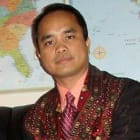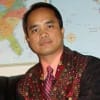commentary Commentary
Commentary: Defiance in Myanmar’s diplomatic ranks threatens the military’s power
Myanmar’s UN envoy Kyaw Moe Tun’s actions have sparked dissent among Myanmar diplomats, which could keep the coup high on the international agenda, says Dr Nehginpao Kipgen.
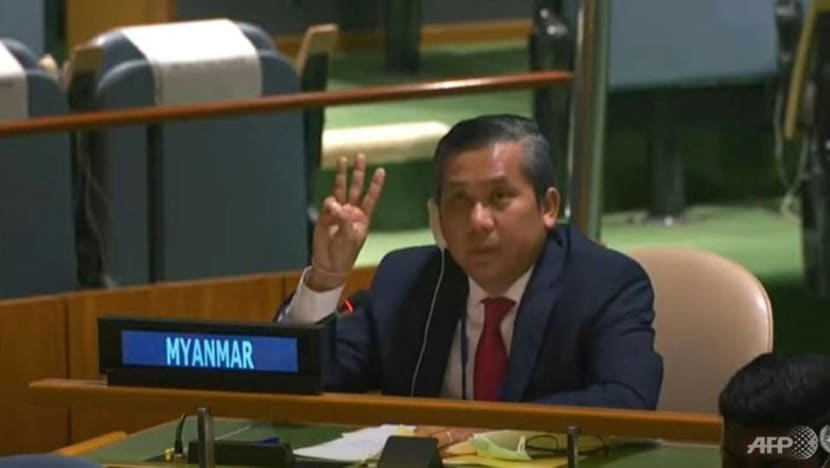
Myanmar's ambassador to the UN Kyaw Moe Tun making a three-finger protest salute on February 26, 2021 - he has rejected the military government's claim he has been sacked. (Photo: AFP)
NEW DELHI: Since its February coup, the military leaders in Myanmar have been doing all it can to entrench power, legitimise its actions and solidify the new status quo.
However, the junta has suffered setbacks on all fronts.
On the domestic front, the military has faced strong protests over the past month, bolstered by the ongoing widespread civil disobedience movement from people from all walks of life, which now include the closure of shops, factories and banks.
Demonstrations have not abated, despite security forces killing more than 60 and detaining more than 1,800, amid blackouts imposed on social media and the cancellation of licenses held by five local media outlets.
READ: Commentary: With violent crackdowns, is Myanmar passing the point of no return?
The military has resorted to increasingly aggressive actions to clamp down on dissent, including overnight blockades to catch protesters violating curfews in Yangon.
A COURAGEOUS ACT
On the international front, some major developments threaten to keep the issue on the global agenda.
The first major setback for the military came on Feb 26 when Myanmar’s United Nations ambassador Kyaw Moe Tun, in what many described it as a courageous act while addressing the 193-member UN General Assembly, appealed to the UN “to use any means necessary to take action against the Myanmar military” to restore democracy.
He ended his speech with a three-fingered salute.
The ambassador’s action was motivated by at least four factors. First, he was appointed by the ousted National League for Democracy (NLD) government. It was a matter of loyalty to the party, the government and its leadership.
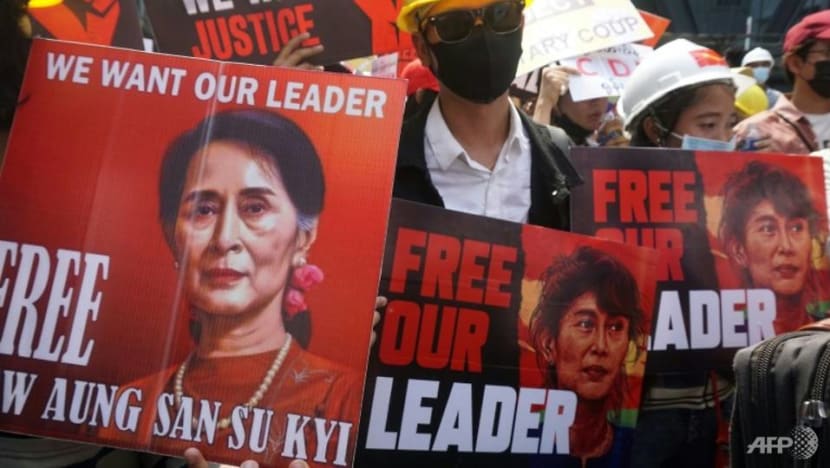
Second, the ambassador himself disapproved of the usurping of power from a democratically elected government. Despite the military’s allegation of electoral fraud, there has not been substantive evidence supporting such claims.
Third, the ambassador was shocked, and perhaps disgusted by the use of lethal force and violence on largely peaceful protesters.
Fourth, the ambassador was probably emboldened by the speech of the UN Secretary-General Antonio Guterres’ special envoy on Myanmar, Christine Schraner Burgener, when she warned that no country should recognise or legitimise the Myanmar junta that same day.
READ: Commentary: Has Myanmar coup sparked rethinking on non-interference among ASEAN countries?
FIRED BUT NOT ALONE
Unsurprisingly, a day after his emotional speech at the General Assembly, the Myanmar junta fired Kyaw Moe Tun and named his deputy Tin Maung Naing the country’s acting UN envoy. Kyaw Moe Tun refused to capitulate to the military’s order.
There was brief confusion over who represented Myanmar at the UN. Thankfully, Tin Maung Naing cleared things up by resigning.
Their resistance has galvanised support within Myanmar’s diplomatic circles to oppose the military. On Thursday (Mar 4), the Myanmar embassy in Washington DC issued a statement denouncing the civilian deaths and called for security forces to “fully exercise utmost restraint”.
READ: Commentary: Myanmar coup poses first foreign policy test for Biden on Southeast Asia
READ: Commentary: US sanctions on Myanmar will not reverse the coup
And on Monday (Mar 8), Myanmar's ambassador to Britain Kyaw Zwar Minn called for the release of ousted State Counsellor Aung San Suu Kyi and President Win Myint and said that a peaceful negotiation must be the solution to the country’s problems.
Having this many high-level diplomats break ranks with the junta could win the Myanmar protesters allies and harden international opposition to the coup. UK Foreign Secretary Dominic Raab has since praised Kyaw Zwar Minn’s “courage and patriotism” and said the UK joins him in his call for the immediate release of Aung San Suu Kyi and a return to democratic rule.
The Myanmar military regime knows this is a dangerous development. They have accused its UN envoy of “high treason” for insisting he represents the NLD government, in an attempt to scare its diplomats.
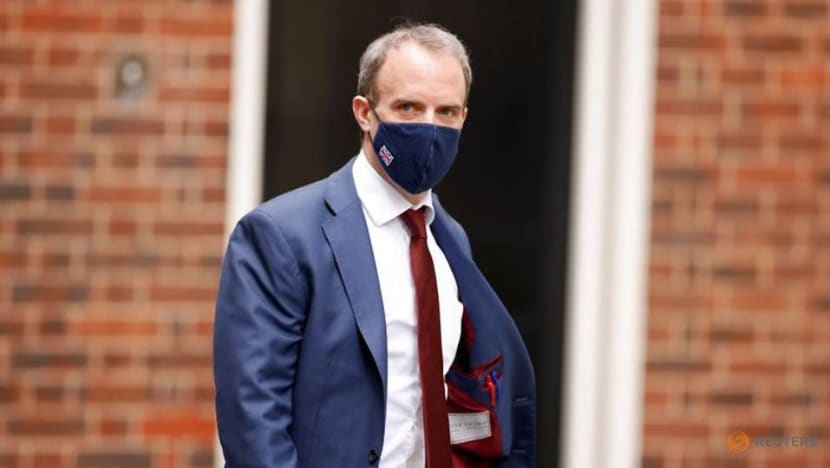
It has also attempted to recall over 100 staff from overseas missions including the US, UK, China, Japan and India, to little avail.
It remains to be seen how the UN might deal with a situation where the Myanmar military again attempts to replace its UN envoy, though the UN General Assembly could call for a vote after the UN accreditation and protocol committees examine the facts of the case, as UN spokesman Stephane Dujarric outlined last week. The UN community is not likely to accept a change.
LACKING LEGITIMACY
This diplomatic mutiny is raising uncomfortable conversations about Myanmar’s coup and invidious comparisons with those in Thailand and Indonesia in global diplomatic circles.
For one, the Royal Thai Armed Forces enjoys a strong base of support, and is seen as a stabilising force holding Thailand together.
The country has suffered deep divisions over the last 15 years, with relentless political contestation entrenching the positions of nationalistic royalists on the one side and democratic forces championing the rights of ordinary Thais on the other. People have tired of crisis.
READ: Commentary: To be president? What Myanmar military leader's endgame may be
READ: Commentary: The Milk Tea Alliance sweeping through Thailand is a force to be reckoned with
Today, the Thai military has not only the support of urban elites but also the approval of the Thai palace, which has been a popular, powerful force for centuries respected by large swaths of the Thai populace.
In contrast, there is no such single powerful institution restraining the Myanmar military’s actions. Buddhist monks are highly revered in this predominantly Buddhist society, comprising nearly 90 per cent of the population, but the 2007 Saffron Revolution showed that the country’s security forces will not hesitate to use deadly force on them.
The Myanmar junta should also not be compared to Suharto’s New Order regime, which assumed power in Indonesia in 1967 after ousting President Sukarno and stepped down after the Asian Financial Crisis in 1998. In Suharto was national interest, party interest and personal interest consolidated in one man.
READ: Commentary: ASEAN can do better on Myanmar this time
Yet, once Suharto knew he had lost all support of his Cabinet, he resigned.
Let’s also not forget that the Indonesian Armed Forces (TNI) have been cooperative with bureaucratic reforms since then to reduce its deep involvement in civilian life, including the abolishment of military positions in parliament, the ending of the TNI's business activities and the separation of internal security responsibilities to form the Indonesian Police Force that is independent of the armed forces.
Unlike in Indonesia, where politics were eventually ceded to democratically elected political leaders, the military in Myanmar wants to be the chief architect of the country’s political transition which it calls a “genuine and disciplined-flourishing democracy”.
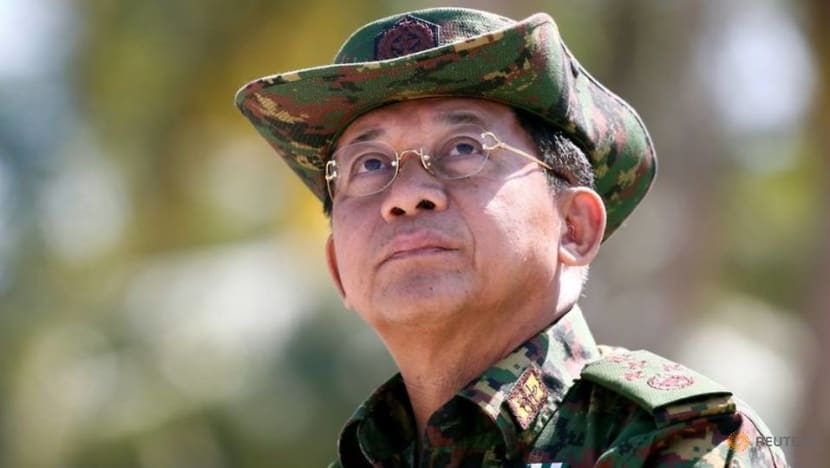
It wants to enjoy the benefits of democracy and form part of the international community, but it does not want to give up its inherent role in politics.
Following the first military coup by General Ne Win in 1962, Myanmar adopted what it called the “Burmese Way to Socialism”, a blend of socialism with an inherent role for the military. Following the 2011 political transition, Myanmar took a similar approach.
WHAT DIPLOMATIC PROTESTS COULD AMOUNT TO
What is clear is that the defiance by Myanmar’s diplomats will keep the country’s coup on the international community's radar for some time.
But what will come out of it? Of course, the Myanmar military can be forced to relinquish their power should the UN Security Council decide to take a decisive action under Chapter VII of the UN Chapter, which includes the use of force.
Even a coalition of the willing, similar to what the US pursued in Iraq years ago, can permanently change the behaviour of the Myanmar military.
But such a possibility is incredibly remote. Neither the US nor any foreign power will go to such lengths when they themselves are bogged down with domestic priorities.
Interestingly, perhaps sensing the impatience over Myanmar, China, Myanmar’s biggest trading partner and its staunchest supporter, announced it was ready to engage with “all parties” without taking sides on Sunday.
This is particularly significant given increasing calls among Myanmar protesters to disrupt Chinese investments in Myanmar, including the Myanmar-China oil and gas pipelines, if nothing changes. Demonstrations outside the Chinese Embassy in Yangon some weeks back took an anti-Chinese tone, with calls to boycott Chinese goods.
The US and China should now find a room for dialogue with the Myanmar military leaders and the elected NLD leadership, and enlist the help of ASEAN, whose shuttle diplomacy has eased tensions to some extent.
The sight of Myanmar diplomats protesting on their own should be sufficient reason for the international community to sit up and take a coordinated approach.
SIGN UP: For CNA’s Commentary weekly newsletter to explore issues beyond the headlines
Dr Nehginpao Kipgen is a Political Scientist, Associate Professor and Executive Director at the Center for Southeast Asian Studies, Jindal School of International Affairs, O P Jindal Global University. He is the author of three books on Myanmar, including Democratization of Myanmar.








